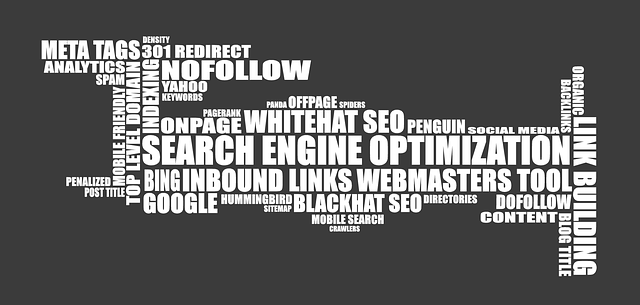AI-powered search is transforming traditional information retrieval by leveraging machine learning and natural language processing (NLP) to understand user intent better than ever before. This technology offers significant advantages, such as faster, more precise results with reduced query refinement needs, leading to enhanced user experiences and higher engagement and conversion rates for businesses. AI search also enables innovative applications in various sectors like healthcare and e-commerce through voice assistants, semantic indexing, and predictive analytics. Despite challenges in accurately interpreting user intent due to query ambiguities and dynamic information environments, ongoing advancements in NLP and ML promise improved context understanding and personalized outcomes. Additionally, the integration of streaming data and real-time analytics, alongside ethical considerations like privacy, bias mitigation, and fairness, will shape the responsible development and deployment of AI search technologies.
In today’s digital landscape, efficient information retrieval is paramount. Enter AI-powered search, a revolutionary technology transforming how we interact with data. This article delves into the intricacies of this innovative system, exploring its fundamental principles and abundant advantages. We examine how AI transcends traditional search functions, highlighting real-world applications and use cases. Furthermore, it discusses current challenges and paints a future prospect where AI-powered search continues to evolve and shape our digital world.
- Understanding AI-Powered Search: The Basics and Benefits
- How AI Transforms Traditional Search Functions
- Applications and Use Cases of Intelligent Search
- Challenges and Future Prospects in AI Search Technology
Understanding AI-Powered Search: The Basics and Benefits

AI-powered search is transforming how we interact with information. Unlike traditional search engines, which rely on algorithms that primarily consider keyword density and link structure, AI-driven systems leverage machine learning and natural language processing to understand user intent better. They can interpret complex queries, context clues, and even sentiment, delivering results that are not just relevant but also highly personalized.
The benefits of this evolution are multifaceted. Users enjoy faster, more accurate searches with reduced need for refinement. Businesses, on the other hand, benefit from improved user experiences leading to higher engagement and conversion rates. Moreover, AI-powered search enables innovative applications like voice assistants, semantic indexing, and predictive analytics, opening up new possibilities in areas ranging from healthcare to e-commerce.
How AI Transforms Traditional Search Functions

Artificial intelligence (AI) is revolutionizing traditional search functions, transforming the way users interact with information. AI-powered search goes beyond keyword matching by understanding user intent and context, thanks to advanced natural language processing (NLP) and machine learning algorithms. This means that searches are no longer limited to exact phrases or keywords; instead, users can ask questions in a conversational manner, receiving relevant results based on their query’s meaning and context.
One of the most significant benefits of AI-powered search is its ability to deliver personalized results. By analyzing user behavior, preferences, and search history, AI algorithms can anticipate individual needs and provide tailored suggestions. This not only improves the user experience but also increases engagement and satisfaction by offering more relevant and accurate information. Additionally, AI can handle complex queries, multiple languages, and even image or voice searches, expanding accessibility and usability across diverse platforms.
Applications and Use Cases of Intelligent Search

Intelligent search, driven by AI-powered algorithms, is transforming how we interact with information. Beyond traditional keyword matching, these advanced systems leverage natural language processing and machine learning to understand user intent, context, and even sentiment. This allows for more precise and relevant results, making it invaluable across various sectors.
Applications range from e-commerce platforms using intelligent search to provide personalized product recommendations based on browsing history and preferences, to enterprise search tools enabling faster knowledge discovery within vast document repositories. In healthcare, AI-powered search facilitates quick access to critical medical literature and patient records, while in education, it empowers students to find relevant research materials and educational resources more efficiently.
Challenges and Future Prospects in AI Search Technology

Despite remarkable advancements, AI-powered search faces several challenges that hinder its widespread adoption and effectiveness. One significant hurdle is the complexity of understanding human intent accurately. Search queries often contain ambiguities or subtle nuances that traditional algorithms might misinterpret, leading to irrelevant results. Moreover, as information landscapes become vast and dynamic, keeping search systems up-to-date with evolving data patterns and user preferences remains a constant challenge.
Looking ahead, the future of AI search technology holds immense promise. Advancements in natural language processing (NLP) and machine learning algorithms can improve intent recognition, context understanding, and personalized result delivery. Integration with streaming data sources and real-time analytics will enable search engines to provide timely and relevant insights. Additionally, ethical considerations, such as ensuring privacy, mitigating bias, and promoting fairness in AI-driven search results, will shape the development of more responsible and trustworthy search technologies.
In conclusion, intelligent search, driven by AI-powered search capabilities, is revolutionizing the way we interact with information. By understanding its basics and benefits, leveraging its transformative potential across various applications, and addressing current challenges, we can anticipate a future where AI search technology further enhances our ability to navigate vast amounts of data, ultimately fostering more efficient and insightful discoveries.
